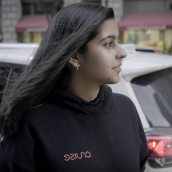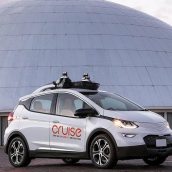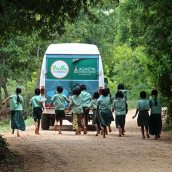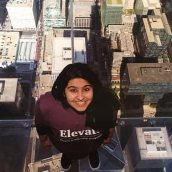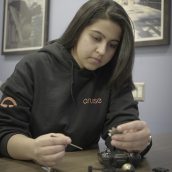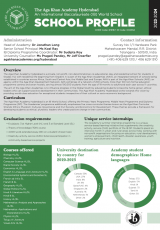Alisha Sonawalla - pushing the frontiers of technology
Alisha Sonawalla was part of the Aga Khan Academy Hyderabad’s first graduating batch, the Class of 2014. Since then, she has accumulated an extraordinary set of experiences during a gap year and subsequently at university in New York City before joining Microsoft in Seattle, USA this summer (2019). These experiences range from heading projects geared at exposing girls in rural India to coding and internet technologies to designing English language development programmes in Tajikistan, and most recently, to spending summers in Silicon Valley working on self-driving cars.
Alisha is currently working as a software engineer at Microsoft after pursuing a dual degree – a Bachelor of Science in computer science and a Bachelor of Science in management science with a concentration in data science (both from New York University (NYU)). She has received the Dean’s Honour Roll for securing a grade point average in the top 10% of the class. Outside the classroom, she has dabbled in multiple projects including building her own robot news-reader and experimenting with developing a secure cloud-sharing service.“The Academy helped me become comfortable with making mistakes and encouraged me to focus on identifying solutions instead,” Alisha said. “That, and my gap year experiences ignited in me a passion for tech and an entrepreneurial spirit, and ever since, I have been excited about building products to push the frontiers of technology forward.”
“It was an exciting time to be in the mecca of tech,” she reminisces. “I led the development of a large-scale mapping service to deliver real-time, preemptive updates to the vehicle, allowing them to make more efficient routing decisions and enhanced ride safety. As one of the early engineers in the self-driving car space, it was amazing to have the opportunity to contribute towards the future of tech.”
“The girls’ newfound confidence became my motivation as I travelled across India and to Tajikistan conducting sessions for women on STEM opportunities,” shares Alisha.
She was also one of 25 female engineers globally who was awarded the "Goldman Sachs Grace Hopper Conference Scholarship" to attend the Grace Hopper Conference, the largest conference for women in tech.
In 2013, while still at the Academy, Alisha travelled across four remote villages of Gujarat to document the livelihood and survival strategies of a lost community, the Devipujaks. Her interviews and field research were compiled into one of the only ethnographic studies done on this marginalised group of people, and she presented her findings at the National Conference on Human Rights organised by the Central University of Gujarat and the Government of India.
In the meantime, Alisha is joining Microsoft as a software engineer on their AI & Mixed Reality team.
“The Academy gave me the space to develop my moral compass by taking on leadership opportunities and experiencing ethical dilemmas first-hand. Being faced with these ethical decisions on a small scale helped me develop a moral compass that guides me through major decisions even today. Moreover, living in a shared space taught me to adapt to different situations, lifestyles and people, which made my transition to NYU, a new city and a different culture seamless.”
Written by Kamini Menon

